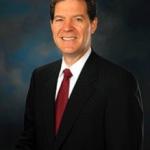The media reports on Donald Trump’s meeting with around a thousand evangelical influencers are still rolling in. I will share and critique these here and on Twitter.
But as politics and religion observers make sense of one of the most momentous faith stories of the 2016 campaign, I submit these five takeaways from the June 21 event.
- Conservative evangelicals are starkly divided on whether or not they can support Trump. For some, Trump is the least bad option. For others, he is beyond the pale. For almost all, supporting Clinton is unthinkable. But they differ on how disastrous a Clinton presidency would be and how many of their principles they should cast aside in trying to stop her.
- Not everyone who attended the New York meeting is a Trump supporter. While attendees generally described the event as more of a rally and less of a conversation, some people came out of curiosity or because they have not decided yet whether or no to support Trump. Much more consequential than these 1,000 votes in November is the question of how much of their influence, energy, and capital they will invest in promoting Trump’s campaign.
- Many undecided evangelicals will decide against Trump. It’s true that Trump won the nominating contest and much of the party establishment has coalesced around him. Many rank-and-file evangelicals who have voted GOP for decades will come home to the party’s nominee. But many will decide his behavior, rhetoric, and/or policies are too much for a Christian conscience to bear.
- Plenty of evangelicals remain resolutely opposed to Trump. The Donald won big with the old guard of the religious right: James Dobson, Gary Bauer, Tony Perkins, Ralph Reed, etc. But in face of strong incentives to simply “agree to disagree” and move on, #NeverTrump evangelicals are making a very strong stand for their principles, even if it means staying out of the fight to keep Hillary Clinton out of the Oval Office.
- The Christian right is alive and reasonably well, but what you saw Monday in New York is the movement’s past, not its future. I never predict the end, decline, or death of the Christian right. The movement has outlived many journalists who wrote its obituary. But the Trump phenomenon is giving clarity to divisions within the Christian right that had been somewhat more arbitrary and amorphous. There is a generational gap among evangelical elites on the Trump question. I remain firmly convinced that the future of the movement is smaller, more committed, more strategic, more robustly theological, and less reflexively partisan.

(Note: This post is part of my series on the role of faith in the 2016 election. Please read about Capitol and Cathedral here. Check out my #Faith2016 news roundups here. I explain my view on the role of religion in politics here. Thanks for sharing this page with your colleagues and friends.)















